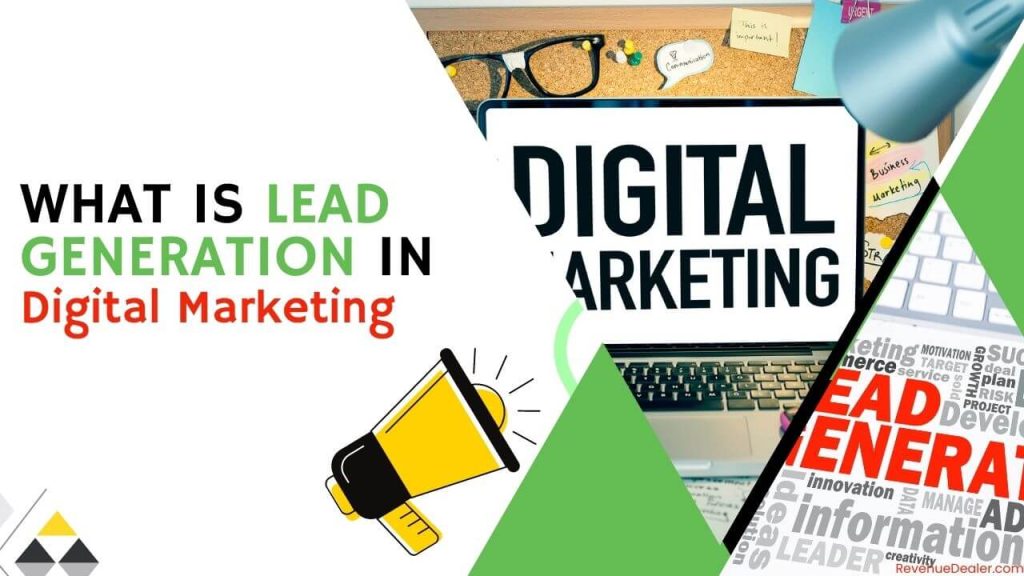Are you curious about Knowing what is lead generation in digital marketing? Are you looking to take your digital marketing game up a notch? Have you heard of lead generation and want to know more? Lead generation is an essential component of any successful digital marketing strategy.
In this blog post, Let’s dive with Revenue Dealer experts into the basics of lead generation in digital marketing, how it works, and why it’s so important! So if you’re ready to expand your knowledge on this popular and powerful technique, keep reading!
What Is A Lead?
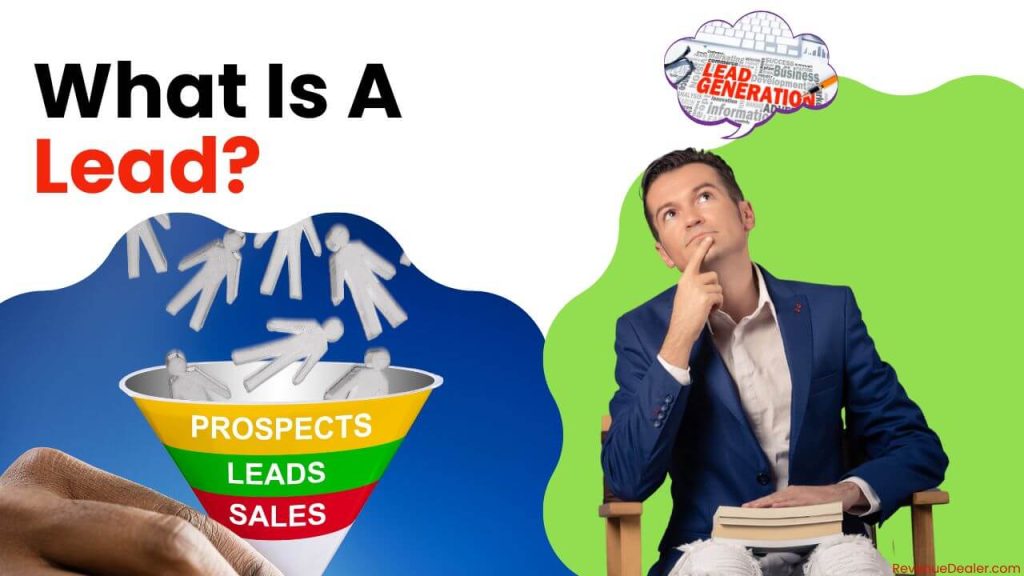
So, you gave your contact info to that company to get a voucher? Well, you’ve just become a lead! That’s right; a lead is simply someone who has expressed interest in a product or service and provided their contact information in return.
By doing so, you’ve allowed the company to start a conversation with you and potentially sell their product. Your information will also help them tailor their marketing efforts to appeal to you.
Don’t worry; being a lead doesn’t mean you’re obligated to buy anything, but who knows – you may find what you’re looking for!
What Are The Different Types of Leads?
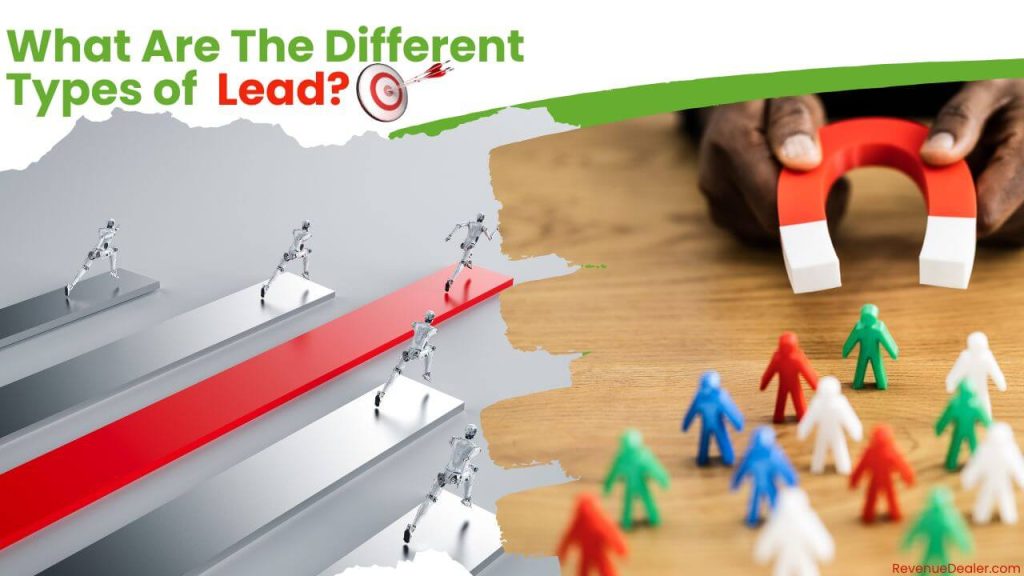
When running a successful business or sales strategy, lead generation is a critical component. However, not all leads are created equal, and understanding the different types of leads is essential for effective lead management. Let’s explore the different types of leads and how they can provide value to your business.
Marketing Qualified Leads
Marketing Qualified Leads (MQLs) are essential leads for any business. These leads represent potential customers who have already shown interest in your product or service.
One example of an MQL is a contact who has filled out a form on your landing page to claim an offer, such as a discount coupon or a free trial.
MQLs are usually in the early stages of the buying process. Still, they can be converted to Sales Qualified Leads (SQLs) with the right approach.
Sales Qualified Leads
Sales Qualified Leads (SQLs) are leads who have shown a serious interest in your product or service and they are further down the sales funnel.
They have demonstrated an intent to purchase your product or service by filling out a form on your website to ask a specific question about your product or service. SQLs require extra attention and a more personalized approach to convert them into customers.
Service Qualified Leads
Service Qualified Leads (SQLs) are customers who have interacted with your business or customer support team and are looking for a solution to their problem. These leads need quick and practical solutions to maintain their interest in your business.
A customer service representative can connect a service-qualified lead to the appropriate account manager or sales team representative for their solution.
Product Qualified Leads
Product Qualified Leads (PQLs) are potential customers who have used the free version of your product or service and have frequently shown interest in the features only available upon payment.
They are usually already engaged with your product and are looking for opportunities to upgrade their account. You must provide them with the required resources and support to proceed with your product.
Other types of leads
There are other types of leads, including Raw Leads, Cold Leads, and Warm Leads. Raw leads can come from various sources and require nurturing to turn them into MQLs.
Cold leads are potential customers who have yet to interact with your business and require cold-calling or email marketing to turn them into MQLs.
Warm leads are potential customers who have already shown some interest in your business but haven’t purchased anything yet.
Why Do You Need Leads?
Drives sales and revenue:
Leads are the backbone of your sales and revenue streams. With leads, you’ll be safe in a sea of potential customers.
Generating leads through various channels, such as social media, email marketing, and advertising, helps attract people to your product or service. The more leads you have, the more chances you have of making a sale, ultimately driving revenue.
Builds customer relationships:
Leads are not just random people who come across your business. They’re people who are genuinely interested in your product or service, and they’re more likely to engage with your business.
Nurturing leads helps build relationships with them, making them more likely to trust your brand, purchase from you, and even refer friends and family to your business.
Provides feedback on your products or services:
Leads can provide valuable feedback on your product or service. Whether through surveys or social media interactions, you can gain insight into how your brand is perceived, what your customers like, and areas that may need improvement.
By listening and responding to customer feedback, you can refine your brand, making it more attractive to potential customers.
Increases brand awareness:
Generating leads through various channels helps increase brand awareness. As potential customers come into contact with your brand, they become more familiar with and aware of your offer.
Even if they don’t make an immediate purchase, their awareness of your brand can lead to future sales or recommendations to others.
Keeps your business running:
Finally, leads are essential to keeping your business running. With consistent leads, you’ll find it easier to generate new sales, nurture and retain customers, and grow your business.
Leads are a necessary part of your business, and it’s essential to have a system in place to generate them regularly.
What is Lead Generation in Digital Marketing?
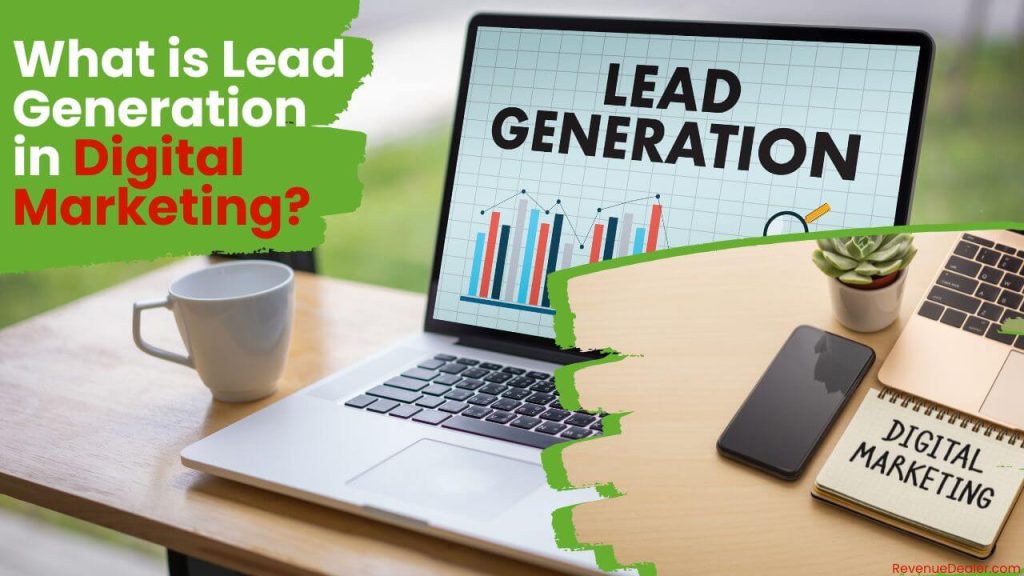
If you’re in the world of digital marketing, you’ve probably heard of lead generation. But what is it exactly? Simply put, it’s identifying potential customers for your business and then nurturing them through your sales funnel until they become paying customers.
Through various marketing tactics such as email campaigns, social media advertising, and content marketing, you can attract people who may be interested in your products or services. From there, it’s all about building relationships with them and guiding them towards a purchase.
Lead generation is a crucial aspect of any digital marketing strategy because, without leads, there are no customers. So, if you want to grow your business online, it’s time to start generating those leads!
Related Article:
Lead Generation Strategies For Digital Marketing Agencies
The Two Main Areas Of Focus For Lead Generation
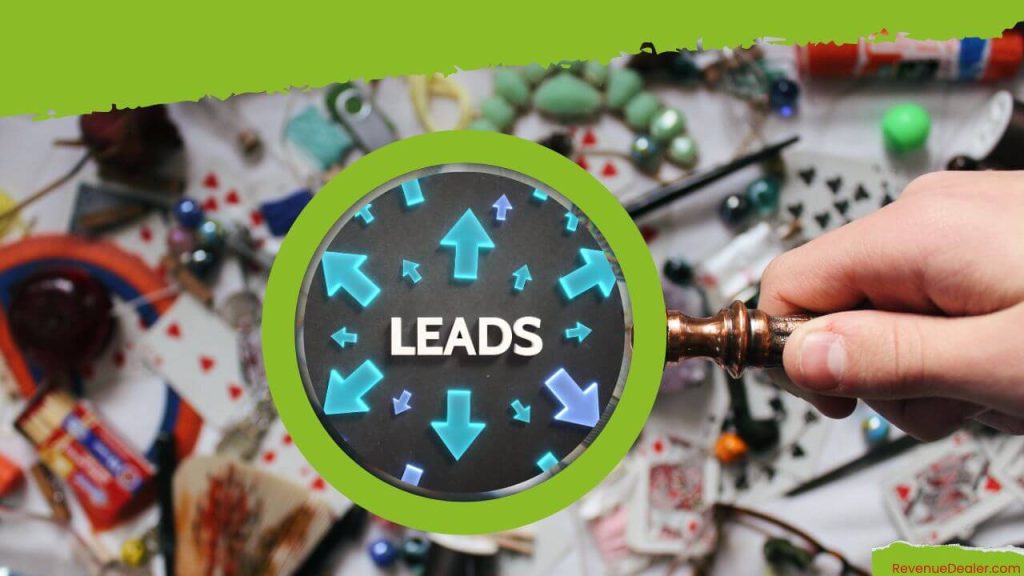
Lead generation is vital to any business marketing strategy as it helps attract potential customers and boost sales. However, more than simply generating leads is required. It’s essential to focus on the quality of leads more than the quantity; to do this, businesses must know their target audience and tailor campaigns accordingly. No, we will discuss the two main areas of focus for lead generation – B2B and B2C – and how you can succeed in both.
B2B Lead Generation
B2B lead generation focuses on inbound marketing techniques. Businesses aim to attract potential clients through their websites, social media, emails, and blogs. It involves identifying decision-makers within companies looking to make changes or add products and tailoring your marketing campaigns to target these individuals.
One effective way to achieve this is using account-based marketing (ABM) strategies. You focus on specific companies and create personalized campaigns for decision-makers within them. Doing this can increase the chances of converting leads into sales.
B2C Lead Generation
B2C lead generation, on the other hand, involves targeting potential customers who are looking for products or services that your business offers. This can be done through various techniques, such as creating engaging content to attract customers to your website, offering free trials or demos, and using email campaigns to engage with potential customers.
It’s important to remember that B2C lead generation involves nurturing leads through the entire customer journey, including after the purchase.
Lead Nurturing and Engagement
Regardless of which type of lead generation technique you choose, it’s crucial to have a good lead nurturing and engagement strategy in place. Lead nurturing involves guiding potential customers through the buying process by providing valuable information, answering their questions, and addressing their concerns.
This can be done through targeted email campaigns, personalized content, and offering customer support. By doing so, you can build trust with potential customers and increase the chances of converting leads into sales.
Importance Of Lead Generation In Digital Marketing
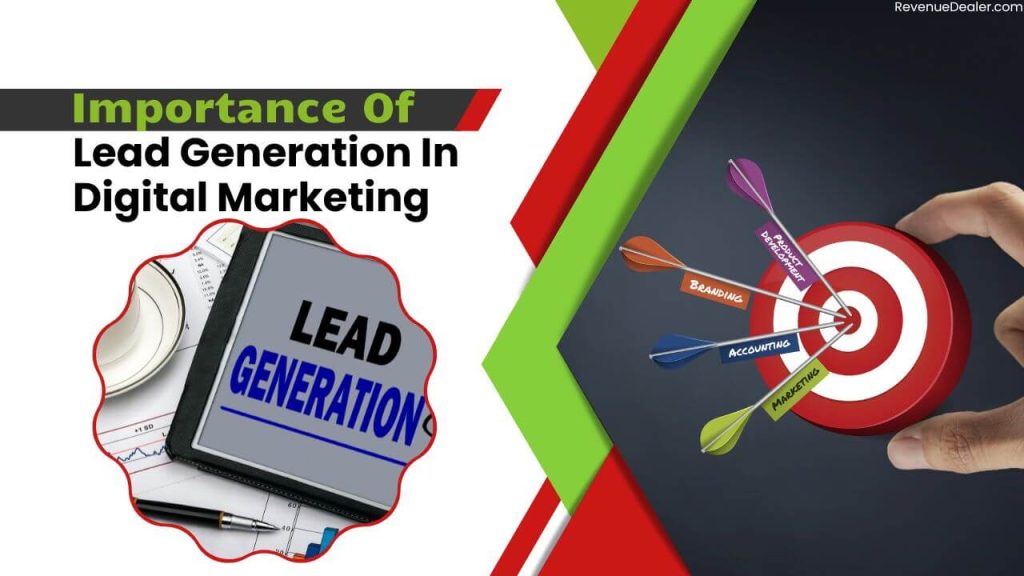
Nowadays, almost every business knows the importance of an online presence. With the increasing number of competitors, it has become necessary to have a strong digital marketing strategy.
However, more than having a strong digital marketing strategy is needed to attract quality customers. Your website and social media accounts may have millions of visitors and followers. Still, all these could only be worthwhile if they are converted into paying customers.
In this section, we will look at the importance of lead generation in digital marketing and how it benefits businesses in the long term.
1. Increase in Sales: The ultimate goal of every business is to increase revenue streams, and lead generation plays a significant role in achieving this.
Through lead generation, potential prospects who have already shown interest in a particular product or service are brought into the sales funnel. This helps in improving the chances of converting them into loyal customers.
2. Targeted Audience: In digital marketing, reaching the right audience is critical. Lead generation helps businesses target and identify prospects more likely to convert into paying customers. This ensures that the marketing campaigns have a better chance of success in the long run.
3. Cost-Effective: Lead generation can be more cost-effective than other marketing strategies. In traditional marketing campaigns, businesses must reach out to the masses, assuming they may have a segment of customers.
However, lead generation can help target specific groups or niches, ensuring the marketing campaigns are more effective.
4. Creating Brand Loyalty: With the vast amount of online information, customers have become smarter and more careful with their decisions. If a business wants to succeed in the long term, it must focus on building brand loyalty.
Through lead generation, prospects are constantly nurtured into the sales funnel, which allows the business to create a relationship with them. Businesses can create brand loyalty by catering to their needs and providing quality services, leading to long-term customers.
5. Improving Marketing Strategies: In digital marketing, everything is measurable. With lead generation, businesses can track their marketing campaigns’ success, ROI, and conversion rates.
Through lead generation, businesses can track everything from the number of prospects entering the funnel to the number of conversions, leading to improved marketing strategies.
Also Read:
How To Make Money With Digital Marketing | 10 Proven Ways
How is Lead Generation Done In Digital Marketing?

Lead generation is one of the most critical aspects of digital marketing. Attracting and converting prospects into potential customers can take time and effort.
But with the right strategies and tools, it can be done effectively. So, at last, we’ll explore the step-by-step procedure of how to master lead generation in digital marketing.
Step 1: Develop a Buyer Persona
The first step in lead generation is to develop a detailed buyer persona. This involves creating a profile of the people you want to attract through your digital marketing campaigns.
It includes demographic information, interests, pain points, and goals of your target audience. By creating a buyer persona, you’ll be better able to tailor your marketing campaigns to the needs of your audience, resulting in a higher conversion rate.
Step 2: Create a Landing Page
Once you have a buyer persona, creating a landing page is next. A landing page is a standalone webpage designed to convert visitors into leads.
It should have a clear and concise call-to-action (CTA) encouraging visitors to provide their contact information in exchange for a valuable offer, such as an e-book, webinar, or free consultation.
Step 3: Promote your Landing Page with Digital Marketing
The third step in mastering lead generation is promoting your landing page with various digital marketing channels. This includes social media marketing, search engine optimization (SEO), pay-per-click (PPC) advertising, email marketing, and content marketing.
You’ll want to create compelling content that speaks to your target audience and promotes your offer. Promoting your offer through various digital marketing channels will increase the number of leads you can generate.
Step 4: Nurture Your Leads
Another essential part of lead generation is nurturing your leads. This involves building a relationship with your prospects by providing valuable content addressing their needs and pain points.
An excellent way to do this is through email marketing automation. By nurturing your leads through regular email campaigns, you’ll increase the chances that they’ll eventually convert into paying customers.
Step 5: Analyze and Optimize Your Campaigns
Finally, analysing your lead generation campaigns over time is crucial to see where you can improve. Use analytics tools to track important metrics like website traffic, conversion rates, and lead generation.
This will help you see which campaigns are working and which ones must be optimized. Once you have this information, you can adjust your campaigns and continue improving your lead generation efforts.
Related Article:
Top 10 Digital Marketing Experts To Follow In 2025
Bottom Line
Lead generation is one of the core practices of digital marketing, and we hope this article can demystify some of the terminology surrounding it. Using different strategies, such as content marketing and SEO, you can ensure that your brand gets in front of more qualified leads who may eventually convert into actual customers.
As a final thought – it’s essential not to overlook the skills and expertise of a reputable external lead generation consultant like a Revenue Dealer. We can help you by providing high-quality leads and detailed insight into which campaigns work best for your business. So that you can craft powerful lead generation strategies for 2025 and beyond.
We are passionate about helping you navigate the complexities of revenue generation and would love to hear from you. If you have questions or are curious about how Revenue Dealer can benefit your business, please don’t hesitate to reach out.
Our team of experts is dedicated to providing you with the insights and support you need to achieve your revenue goals. Let’s connect and explore the possibilities together!
FAQs
Is Lead Generation Part of digital marketing?
Lead generation is a crucial aspect of digital marketing. Digital marketing encompasses all online platforms, including email, social media, and content marketing. Businesses can establish trust with prospects by creating tailored content to meet their needs, leading to long-term relationships. So, when it comes to digital marketing, lead generation remains an integral part of any campaign.
What are examples of digital leads?
Generating leads is the ultimate goal, and many tactics exist to achieve it. Consider paid advertisements, email campaigns, gated content, referral coupons, or landing pages to reel in potential customers. Take advantage of these diverse strategies to stand out in a hyper-competitive digital marketplace.

